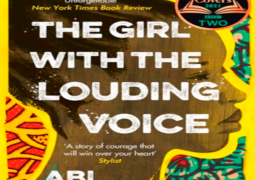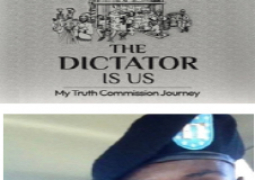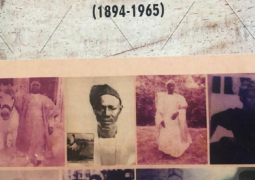
The Autobiography of Malcolm X has sold millions of copies since it was published in the aftermath of its author’s assassination. The memoir has shaped how we view the fiery black revolutionary – his path from street criminal to statesman – not least because it formed the basis of Spike Lee’s 1992 film biopic.
The Dead Are Arising sets out to provide a much fuller picture of the life and death of Malcolm X, drawing on interviews with his friends and family to assess his contribution in the context of the times. The book is based on decades of painstaking research by Les Payne, who died before it was completed, and his daughter Tamara.
It is as much a history of US race relations as it is a biography of the black revolutionary. The opening chapters focus on the world and family Malcolm X was born into, exploring the emergence of the Ku Klux Klan and the climate of racial terrorism that prevailed after the US civil war. Malcolm’s mother and father, Louise and Earl Little, met in the Universal Negro Improvement Association and were high up enough in this, one of the most important black organisations of the 20th century, that its leader Marcus Garvey would spend time working at their home. As a child, Malcolm would listen to his father preaching the Garveyite tenets of black pride, independence and repatriation to Africa. The Paynes make clear that his parents’ influence was at the core of the Malcolm who became famous. As activist Kwame Ture (formerly Stokely Carmichael) once explained, Malcolm never really changed: his “basic philosophy was Garveyism” from childhood to the grave.
The Paynes avoid the mistakes of the last attempt at a comprehensive biography, the late Manning Marable’s A Life of Reinvention (2011). Marable’s epic engages in tabloid conjecture about Malcom’s life as well as trying to paint him as a kind of reformed fanatic, who ended up committed to finding peace in the US. It won the Pulitzer prize, but remains controversial: a collection of respected scholars contributed to a book-length rebuttal in an effort to set the record straight. There is no comparable sensationalism in the Paynes’ book.
One surprise in The Dead Are Arising relates to the death of Earl Little: Malcolm always insisted his father was murdered by white racists. It turns out that he was accidentally run over by a tram car, although Malcolm was never convinced because of the numerous threats made against his life. We also learn more about Malcolm’s meeting, and the Nation of Islam’s collaboration, with both the KKK and the US Nazi party. (These unlikely, and unholy, alliances were based on the common rejection of “race mixing”.) The Dead Are Arising rightly sees Malcolm’s split from the cult-like Nation of Islam as inevitable, given the organisation’s reactionary political stances. In the end, it was his suspension from the NOI for calling the assassination of John F Kennedy “chickens coming home to roost”, and the sex scandal surrounding the leader Elijah Muhammad – he fathered multiple children with his secretaries – that led to his exit. But the Paynes make clear that Malcolm was always going to leave: it was just a question of when and how explosive his departure would be.
This split ultimately led to his death. The final two chapters of The Dead Are Arising are dedicated to an in-depth account of Malcolm’s assassination at the hands of the Nation of Islam. (Both the FBI and the NYPD apparently had informants with intelligence of the assassination and at the very least, did not intervene.) Not only are the killers named, but Louis Farrakhan, current leader of the NOI, admits that he may have “been complicit” and acknowledged that he “created the atmosphere that ultimately led to MX’s assassination”. By the end it is as clear as it should always have been that you cannot be pro-Malcolm X and in favour of Farrakhan and the NOI.
Yet The Dead Are Arising also falls into old traps. Little new is added to the tale of Malcolm’s life of crime, and the book oddly takes its title from the idea that black Americans were dead until they converted and rose into the NOI. True, Malcolm’s political solutions, in particular the creation of the Organisation of Afro-American Unity in 1964, are discussed, but only briefly. And there is too little on the deep and decades-long international dimension to his activism. The focus on his assassination is unfortunate because it covers familiar ground (especially as it follows this year’s Netflix documentary series, Who Killed Malcolm X?). The least interesting part of Malcolm’s life was his death. He remains largely misrepresented as a tragic figure, who transformed his life, became a beacon of hope but had no real plan for where he was headed.
What this generation needs is not an extended version of the flawed narrative we already have. Malcolm X developed one of the most sophisticated understandings of racism and also a practical, global, radical programme in response. He saw through the false promises of reform, arguing that “this system can no more provide freedom, justice and equality than a chicken can lay a duck egg”, and that we therefore need to look for radical solutions. The recent spate of protests have reminded us that we need the lessons of Malcolm now perhaps more than ever. But for those lessons, it is best to go directly to the man himself and to his collection of speeches. “The Ballot or the Bullet”, though published nearly 60 years ago, is one of the best pieces of social commentary on the current tattered state of race relations.
Available at Timbooktoo tel 4494345




